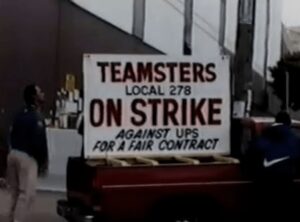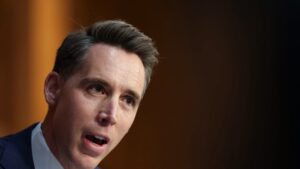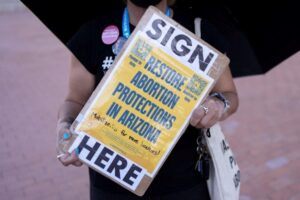Bolivian President Evo Morales and Vice President Álvaro García Linera resigned their posts November 10 after the Bolivian military joined elements of the police in calling for the government to step down. This coup d’etat opened a power vacuum in the Bolivian state that leading politicians of the far right have moved to fill.
One of these, Luis Fernando “Macho” Camacho, a millionaire leader of the right-wing opposition who has ties to fascist groups, presented himself at the presidential palace with a bible in one hand and a resignation letter for Morales to sign in the other. This appeal to the Christian religion, one of the legacies of the Spanish conquest, is a thinly veiled assertion of white supremacy against a government of Bolivia’s first Indigenous president. In the days that followed, far right mobs demonstrated more overt racism in terrorizing MAS politicians and in organizing burnings of the Wiphala, the multi-colored flag of Bolivia’s Indigenous majority.
On November 12, Morales and García Linera arrived in México as political exiles. Meanwhile, in Bolivia, right-wing senator Jeanine Áñez proclaimed herself president in a rump parliament boycotted by its majority in Morales’s Movimiento Al Socialismo (MAS) party.
The crisis in Bolivia unfolded after the country’s October 20 election delivered a result that led many—and not just the far-right opposition—to charge the government with electoral fraud. The government requested that the Organization of American States (OEA) conduct an audit of the results. When the OEA—hardly a friend to the region’s progressive governments—disclosed irregularities in the vote counts, Morales agreed to call new elections. But the right-wing opposition pressed his resignation instead.
At the time of writing, the situation in Bolivia remains unstable as the right tries to tighten its grip. But it is facing an awakened resistance, rooted in El Alto, the largely Indigenous city above the capital of La Paz, and the social movements, including the Bolivian Workers Center (COB), the main labor federation. On November 12, the COB delivered an ultimatum to the country’s political leaders: “We give you 24 hours to reestablish constitutional order, social peace and unity of the Bolivian people and to avoid more spilling of blood, tears, mourning and violence.”
As the Argentinian socialist newspaper Alternativa Socialista put it, “New battles are coming and we will see how they unfold. Not all is said and done.”
For the international left, the developments in Bolivia pose a challenge. On the one hand, we must stand unreservedly with the Bolivian people’s struggle against the coup and the once-marginalized far right that is trying to reclaim its hold on power. On the other hand, we have to draw a balance sheet of the Morales government, which had been considered one of the most successful of the progressive “pink tide” governments in Latin America. As the noted left-wing Uruguayan journalist Raúl Zibechi, a chronicler and supporter of the region’s social movements, explains, the Morales government had undermined its own popular support, particularly with the country’s Indigenous movement, long before the 2019 crisis. This article was first published here. – Lance Selfa
Bolivia: A popular uprising hijacked by the far right
An uprising of the Bolivian people and their organizations was the last straw that brought down the government. The main social movements demanded the government’s resignation before the armed forces and police did. The Organization of American States propped up the government almost to the end. The critical political conjuncture that Bolivia is passing through didn’t begin with election fraud, but with the systematic attack by the administration of former president Evo Morales and former vice president Álvaro García Linera on the social movements that carried them to the seat of the Bolivian government. But when the government needed the movements to defend it, the movements were demobilized and demoralized.
- The social mobilization and the refusal of the movements to defend what, at one time, they considered “their” government was what precipitated Morales’s resignation. The statements from the Bolivian Workers Center (COB, the main federation of unions), from teachers and administrators at the University of El Alto (UPEA), from dozens of organizations and from Mujeres Creando, one of the leading feminist groups, perhaps will make that clear. The Latin American left can’t accept that a considerable part of the popular movement demanded the government’s resignation, because the movements viewed the government as little more than caudillos (political bosses).
The statement of the historic Union Federation of Bolivian Mine Workers (FSTMB), close to the government, is the clearest example of the sentiment in many movements: “President Evo, you’ve already done much for Bolivia, you’ve improved education, and you’ve given dignity to many poor people. President, don’t leave your people to burn, or order more killings. All the people will value you for the position you have to take. Resignation is inevitable, comrade president. We have to leave the national government in the hands of the people.”
- This sad parting of ways is rooted in, to be very brief, the indigenous peoples’ march in defense of the Indigenous Territory and Isiboro-Securé National Park (TIPNIS) in 2011. After that mass action, the government began to divide the organizations that called it.
While Morales-García Linera maintained excellent relations with the capitalist class, they launched a coup against the National Council of Ayllus and Markas of Qullasuyu (CONAMAQ, the national organization of governing bodies of Quecha-, Aymara- and Uru-speaking indigenous communities) and the Confederation of Indigenous Peoples of Bolivia (CIDOB), the two historic organizations of the First Nations in Bolivia. They sent in the police, removed legitimate organization leaders, and later, under protection of the police, installed pro-government leaders in their place.
In June 2012, CIDOB denounced “the intervention of the government whose only purpose is to manipulate, divide and shape the genuine, representative expressions of the Indigenous peoples of Bolivia.” A dissident group allied with the government refused to recognize the CIDOB leaders and created an “expanded commission” to elect new authorities.
In December 2013, a pro-government faction in CONAMAQ, took over a local office, beat up and expelled its members, and continued to occupy the headquarters with police support while the legitimate representatives tried to reclaim it. A communiqué from the organization asserted that the coup against CONAMAQ was launched so that [the government] could “push through policies against the Indigenous movement without anyone speaking up.”
- On February 21, 2016, the government called a referendum so that the people could decide whether Morales should get a fourth term in office, which the constitution barred. In spite of the fact the majority voted no, the government continued forward with plans for reelection.
Both factors—the dismissal of the popular will and the expulsion of legitimate leaderships of the social movements—were blows against the people.
More serious still. On the morning of February 17, 2016, days before the referendum, parents of school students demonstrated at El Alto’s city hall. A group of 100 demonstrators forced their way into the building. A fire broke out, leaving six dead. The demonstrators who infiltrated parents’ demonstration belonged to the Movement Toward Socialism (MAS), the government party. [Note: El Alto’s mayor Soledad Chapetón accused MAS operatives of planning the invasion of the mayor’s office so that they could destroy records that might implicate MAS in corruption.]
This is the style of a government that shouts “coup” now but repeatedly repressed organized popular sectors who challenged the government’s extractivist policies.
- Most people in Bolivia considered the October 20 elections fraudulent. The early results pointed towards a second round, with Morales facing off against the right-wing ex-president Carlos Mesa. But the vote tally stopped without any explanation and the results published the next day showed that Evo had won in the first round, as he had led Mesa by more than 10 percent even if he hadn’t gotten more than 50 percent of the votes. In several regions clashes with police broke out, while demonstrators burned down three regional offices of the electoral tribunal in Potosí, Sucre and Cobija. Citizens’ organizations called an open-ended general strike. On October 23, Morales warned that a “coup d’état” by the Bolivian right was unfolding.
On October 28, the protest intensified with blockades and confrontations with the police, but also between sympathizers and opponents of the government. As on other occasions, Morales-García Linera mobilized pro-government organizations to confront other organizations and people who opposed his government.
November 2 marked an important turning point. Luis Fernando Camacho, the president of the Santa Cruz Civic Committee—which had of late maintained a working relationship with the Morales government— called on the army and police to “stand with the people” to force the president’s resignation, invoking God and the Bible. On Friday the 8th, the first three police units in Cochabamba, Sucre and Santa Cruz mutinied, and the uniformed police fraternized with the demonstrators in La Paz. Two days later, with a country mobilized, the president and vice president offered a verbal resignation, but did not issue a written one.
- In this scenario of polarization, we must highlight the remarkable intervention of the feminist movement of Bolivia, in particular the collective Mujeres Creando (Women Creating), which led a mobilization of women in the main cities. On November 6, in the midst of violent polarization, María Galindo wrote in the newspaper Página 7: “Fernando Camacho and Evo Morales complement each other. Both consider themselves as the only representatives of the ‘people’. Both hate women’s freedom and homosexuality. Both are homophobic and racist, both use conflict to their advantage.”
Not only did she demand the resignation of the government and the electoral tribunal (complicit in the fraud), but also the calling of new elections with new rules, where society is involved, so that “no one ever needs a political party to be heard and to exercise representation”.
The vast majority of Bolivians did not join in the contest that Morales-García Linera wanted to provoke when they resigned and ordered their supporters to conduct a campaign of destruction and looting (particularly in La Paz and El Alto)—probably to force military intervention and to justify their denunciation of a “coup” that never existed. Nor did they join with the ultra-right, which launches racist attacks against the popular sectors.
- The Latin American left, if it has any remaining ethics and dignity, must reflect on power and the abuses that its exercise entails. As feminists and native peoples teach us, power is always oppressive, colonial and patriarchal. That is why they reject warlords and communities rotate their leaders so that they do not accumulate power.
We cannot forget that at this moment there is a serious danger that the racist, colonial and patriarchal right will manage to take advantage of the situation to take over and to provoke a bloodbath. The political and social reaction of the ruling classes is as ever-present as it has been for five centuries. It must be stopped without hesitation.
But let’s not join the war games that both sides want to impose on us.
Lance Selfa is the author of The Democrats: A Critical History (Haymarket, 2012) and editor of U.S. Politics in an Age of Uncertainty: Essays on a New Reality (Haymarket, 2017).





